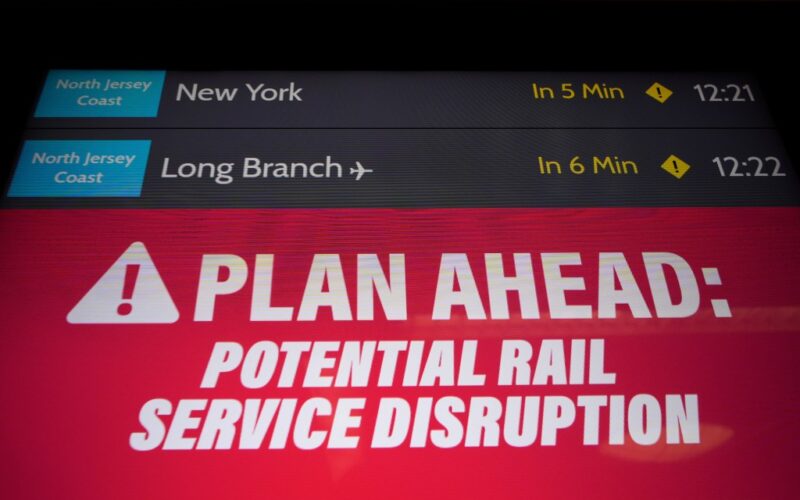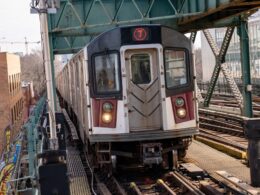A labor dispute between NJ Transit’s locomotive engineers and the Garden State transit agency’s management threatened to become New Jersey’s first rail strike in more than 40 years, as a Friday morning deadline for engineers to walk off the job loomed. Here’s what commuters need to know:
Will NJ Transit engineers go on strike?
As of Thursday morning, NJ Transit management and the Brotherhood of Locomotive Engineers and Trainmen — the union representing about 450 Garden State train engineers — remained at odds.
BLET’s deadline for a resolution before walking off the job is 12:01 a.m. on Friday morning. And despite both sides meeting with federal mediators in Washington, D.C. on Monday, a Friday morning strike remains a strong possibility.
A spokesman for the union confirmed that both sides were at the bargaining table in Newark Thursday, along with a mediator from the National Mediation Board.
What are the engineers demanding?
The disagreement comes down to wages.
NJ Transit engineers say they want parity with their colleagues at Long Island Rail Road and Metro-North, while management says that will lead every other union to ask for similar raises and endanger the financial security of the agency.
The MTA’s Long Island Rail Road, where an engineer’s hourly rate is $49.92, is the busiest of the nation’s commuter railroads. Metro-North, in second place, pays $57.20 an hour.
Currently, NJ Transit engineers, who operate the nation’s third busiest commuter system, start at $39.78 an hour — a figure that includes the NJ Transit engineers who operate within New York State on Metro-North’s west-of-Hudson lines.
The BLET and NJ Transit reached a tentative contract agreement in March, after working without a contract since the start of 2020.
That agreement, according to NJ Transit president Kris Kolluri, included a pay bump that would have seen BLET members earn $49.82 an hour by the summer. But the contract was overwhelmingly rejected by the union rank-and-file, who voted it down by 87%.
But LIRR engineers are in the midst of their own negotiations, and BLET’s N.J. boss, Tom Haas, has said any parity with the Long Island engineers would therefore be fleeting.
In the event of a strike, will any NJ Transit trains be running?
No.
How else can NJ Transit riders get around?

Should train lines become picket lines, NJ Transit is hoping to offer other ways to travel.
The state’s buses — whose unionized drivers just reached a contract agreement with NJ Transit this month — will still be running, and NJ Transit management is hoping to use them to ease the pain.
The transit agency will run “park and ride” routes, with NJT buses taking people from Secaucus Junction to the Port Authority Bus Terminal in Midtown Manhattan, from the Hamilton rail station to Newark Penn’s PATH station, and from the Woodbridge Mall to the Harrison PATH station.
Private contractor Academy Bus will also operate a park-and-ride from the PNC Bank Arts Center in Holmdel to the Port Authority Bus Terminal — but Academy will not be accepting NJ Transit tickets.
Bus service will be increased on a series of regular New York-bound routes, and NJ Transit rail tickets to or from New York, Newark or Hoboken will be cross-honored on NJ Transit buses and the Hudson-Bergen Light Rail.
How long could a strike last?
It’s unclear. NJ Transit rail strikes are a rarity.
An NJ Transit rail dispute seemed headed for a strike back in 2016, but eleventh-hour negotiations averted a work stoppage.
The Garden State’s engineers last hit the picket lines in 1983, when they struck for 34 days.








